
|
GCOOS is the Gulf of Mexico regional component of the U.S. Integrated Ocean Observing System (IOOS). Our mission is to provide timely, reliable and accurate information on the open and coastal ocean waters of the Gulf of Mexico to ensure a healthy, clean, productive ocean and resilient coastal zone.
|
|
|
|
December 2018 - In This Issue:
|
|
|
|
|

Greetings!
We're closing out the year on a high note with the announcement of the National Academies of Sciences, Engineering, and Medicine Gulf Research Program awards for studies of the Gulf of Mexico Loop Current. GCOOS will receive funding for a project titled "Data Compilation to Improve Understanding, Simulation and Prediction of the Loop Current System."
I'm also pleased to share the news that several of our GCOOS members also received awards, including GCOOS Board Members Stephan Howden, from the University of Southern Mississippi, and Nick Shay, University of Miami, former Board Member Tony Knap, Texas A&M University -- College Station, and GCOOS member Robert Weisberg, from the University of South Florida.
The LCS is one of the most significant forces in the Gulf -- affecting everything from storm patterns to offshore safety and even the food web -- and gaining a better understanding of its dynamics will benefit all Gulf residents and users in the coming years.
We're looking forward to a busy and productive 2019 -- including some exciting changes in January that will give a "facelift" to the tools we use to communicate with our members and our users.
But first, we're taking a break -- GCOOS headquarters will be closed from noon on Dec. 21 through Jan. 1. We'll be back in the office on Jan. 2. Until then, we're wishing you all the best for the holidays and a wonderful 2019!
Barb Kirkpatrick
Executive Director
|
|
|
Nadine Slimak, Public Relations & Content Marketing, Vetted Communications, LLC
In Memoriam: Matt Howard, 1952-2018
|
|
|
| Loop Current Study Awards |
|
The National Academies of Sciences, Engineering, and Medicine Gulf Research Program announced the award of $10.3 million in grants for eight new projects to conduct studies and collect data and observations that will inform the planning and launching of a long-term research campaign to improve understanding and prediction of the Gulf of Mexico Loop Current System (LCS).
A report released earlier this year by the National Academies of Sciences, Engineering, and Medicine identified existing knowledge gaps and called for a long-term research campaign to help improve understanding and prediction of the LCS. These eight projects were selected through the first funding competition related to that long-term research campaign; planning for the next funding competition is now underway and expected to open in 2019.
On Jan. 11, project team members for the first round of funding awards will convene to plan for and facilitate coordination of efforts across the different projects. A portion of that meeting, from 9-10:30 a.m. ET, will be broadcast as a webinar open to anyone interested in learning more about this first group of projects, along with the longer term vision and timeline for the research campaign.
GCOOS and GCOOS member projects are:
>>Informing the Loop Current Campaign: Data Compilation to Improve Understanding, Simulation and Prediction of the Loop Current System
>>Award Amount: $647,813
>>Project Director: Barbara Kirkpatrick (Gulf of Mexico Coastal Ocean Observing System Regional Association)
|
|
|
>>Project Team Affiliation: Gulf of Mexico Coastal Ocean Observing System Regional Association in cooperation with Fugro, Harte Research Institute, Ocean Sierra, RPS, Texas A&M University-College Station, Texas A&M University-Corpus Christi, and Woods Hole Group
>>Overview: This project will design, develop, deploy, and maintain an information system to digitally compile, update, analyze, and make publicly accessible physical oceanographic and hydrographic data from Gulf of Mexico Loop Current field studies. The system will be an important component of future data compilation efforts for a long-term LCS research campaign.
>>Gulf of Mexico Loop Current and Eddy Observations from HF Radar Systems
>>Award Amount: $1,229,424
>>Project Director: Stephan Howden (University of Southern Mississippi)
>>Project Team Affiliation: University of Southern Mississippi in cooperation with CODAR Ocean Sensors, Shell, and Rutgers University
>>Overview: This project will procure, install, and operate high frequency radar systems to measure surface currents from two offshore platforms at locations in the northeastern most areas of oil and gas operations in the Gulf of Mexico. Data from the systems will provide new, real-time data for model assimilation and validation to better understand the evolution of the LCS.
>>Passive Gulf of Mexico Loop Current Observations from HF Radar Across the Yucatan Strait
>>Award Amount: $844,263
>>Project Director: Anthony Knap (Texas A&M University-College Station)
>>Project Team Affiliation: Texas A&M University-College Station in cooperation with CODAR Ocean Sensors and Rutgers University
>>Overview: This project will procure, install, and operate high frequency radar systems to measure surface currents at two locations in the Yucatan Channel region of the Gulf of Mexico: Isla Contoy and Puerto Morelos. Data from the systems will provide new, real-time data for model assimilation and validation to better understand the evolution of the LCS.
>>Taking the Pulse of the West Florida Shelf at a Hypothesized Loop Current Control Point
>>Award Amount: $937,997
>>Project Director: Robert Weisberg (University of South Florida)
>>Project Team Affiliation: University of South Florida in cooperation with University of Delaware
>>Overview: This project will procure, deploy, and operate a single-point, real-time, ocean dynamics mooring northwest of the Dry Tortugas to measure temperature, salinity, and currents at different depths.
|
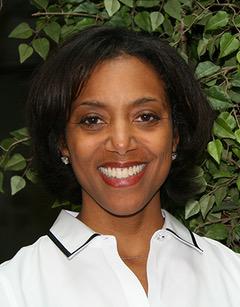
The National Academies of Sciences, Engineering, and Medicine Gulf Research Program has announced the appointment of its new Executive Director: Dr. Lauren Alexander Augustine.
Augustine joins the GRP following a variety of roles on a broad range of topics pertaining to water, natural disasters and resilience. Prior to accepting the position, Augustine served as director of the National Academies' Resilient America Program, which supports communities' efforts to build resilience to extreme events using science and diverse stakeholder engagement. Developing disaster and community resilience are an important component of the GRP's mission and Augustine's knowledge and experience in these areas will be valuable in her new role. She earned her B.S. in applied mathematics and systems engineering and her M.S. in environmental planning and policy from the University of Virginia, and her Ph.D. from Harvard University in an interdisciplinary program that combined hydrology, geomorphology and ecology.
"I look forward to building on the foundation of this program's first five years and continuing its evolution it into a flagship program that benefits the people of the Gulf," she said.
|

The first webinar in the 2019 series from the Coastal & Estuarine Research Federation (CERF) is titled "What I Wish I Knew When I Was a Graduate Student" with Dr. Paul Montagna and Charles "Si" Simenstad.
- When: 1-2 p.m. EST, Jan. 23, 2019
- Summary: One of the most difficult thing students (and young professors) face is getting it all down on paper and eventually into print. However, this gets much easier over time if you gain experience. In this webinar, Dr. Montagna will detail a few things about organization practices that he's learned over the years. Then, Si Simenstad will elaborate on peer review processes as one of the major foundations of modern science, the variation in the way that journals use them, the external peer reviewer as the crux of scientific validation and more.
- Registration
|
IOOS Association Members & HABs
|
This summer and fall, the U.S. coastline was hit with a wave of harmful algal blooms (HABs). IOOS Regional Associations -- including GCOOS -- are developing new tools to
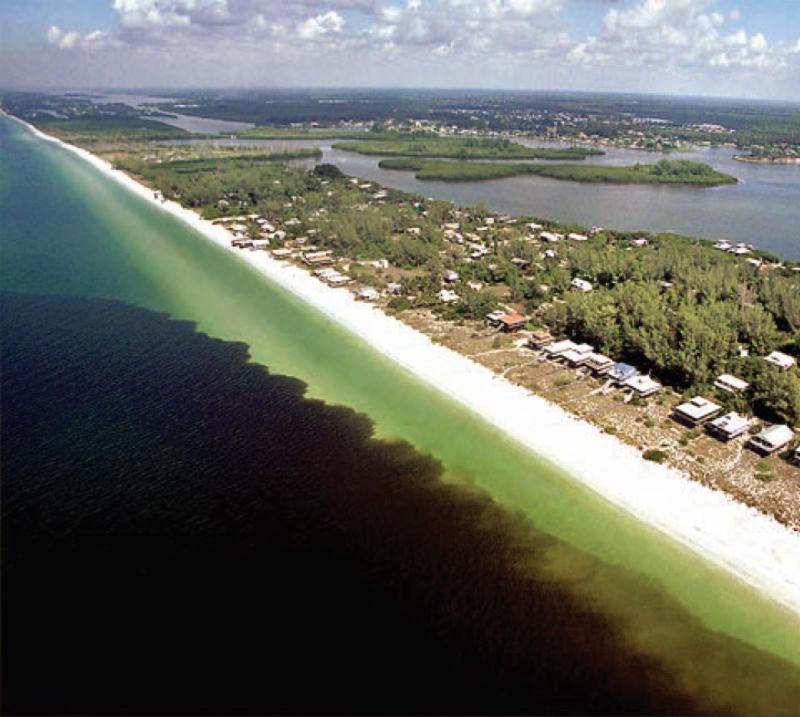 predict HABs events.
While harmful blooms now affect most regions of the country, the blooms vary from region to region -- meaning there is no one-size-fits-all solution.
The regional structure of IOOS allows for each RA to tailor its approach to the regional capacities, unique environmental conditions, the HAB taxa responsible for blooms, and the needs of the stakeholders. IOOS regions work with federal, tribal, state, academic and other partners to identify the requisite observations, forecast models, data management, and communication.
The IOOS Ocean Technology Transfer Project, a competitive grant program designed for emerging technologies has deployed Environmental Sample Processors and Imaging Flow CytoBots in several regions. These new technologies promise to enhance detection of HABs in near real-time and to provide early warnings of harmful events.
|
| Sea-Level Rise and Flooding -- Planning and Law for Local Governments |
Florida Sea Grant, in conjunction with Monroe County and Erin L. Deady, P.A., will host a free workshop "Sea-Level Rise and Flooding: Planning and Law for Local
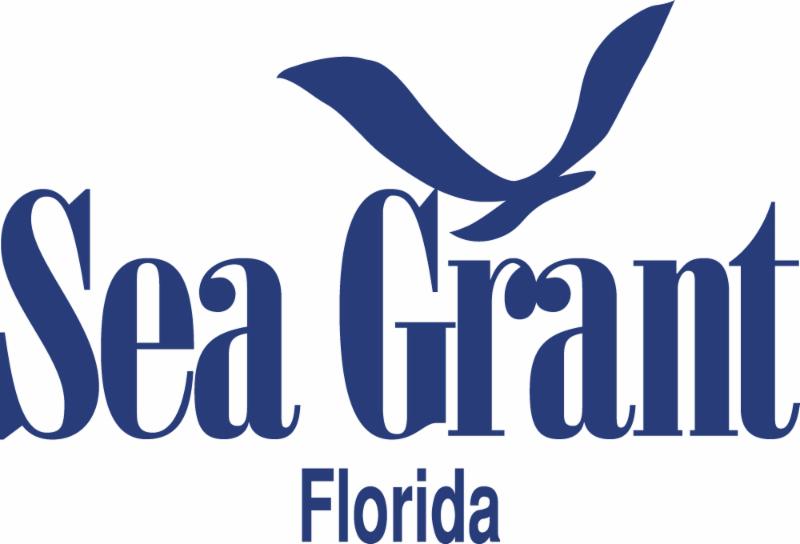 Governments" in Marathon from 8:30 a.m. to 4:30 p.m. on Jan. 9, 2019.
The workshop faculty includes local government staff, academics, practitioners and consultants. Registration is required to receive the free lunch that will be provided to attendees. Professional credits for floodplain managers, AICP-certified planners, and attorneys have been applied for and are pending. Receipt of professional credits also requires registration.
|
| Louisiana Plan for a Sustainable Coast |
The state Coastal Protection and Restoration Authority (CPRA) is accepting
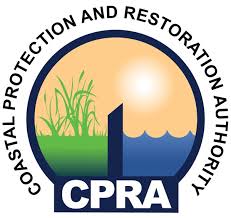 project ideas that Louisiana citizens, governmental bodies and concerned organizations would like to see evaluated and considered for possible inclusion in the next Comprehensive Master Plan for a Sustainable Coast that will be submitted to the Louisiana Legislature in 2023.
All proposals must be delivered electronically, in .pdf format, to
[email protected] or mailed to the 2023 Coastal Master Plan Project Development Program at P.O. Box 44027, Baton Rouge, Louisiana, 70804 and received by March 1, 2019.
|
|
The Sea Grant Oil Spill Science Outreach Team received the National Superior Outreach Programming Award (SOPA), Sea Grant's highest Extension honor. The team of outreach professionals is based in programs located around the Gulf of Mexico and works to synthesize and share peer-reviewed findings about oil spill impacts for audiences who rely on healthy marine ecosystems for work or play.
Given once every two years by the Sea Grant Extension Assembly, the SOPA award recognizes outstanding success in outreach programming. Regional directors from six geographical areas nominate outreach projects for the award. Winning nominees demonstrate exceptional leadership and teamwork that result in significant impacts and public benefit within the Sea Grant extension mission.
The team includes Oil Spill Science Outreach specialists Larissa Graham (Mississippi-Alabama Sea Grant), Chris Hale (Texas Sea Grant), Emily Maung-Douglass (Louisiana Sea Grant) and Monica Wilson (Florida Sea Grant), communicator Tara Skelton and Oil Spill Science Outreach manager Steve Sempier (both Mississippi-Alabama Sea Grant) each received an award. LaDon Swann, director of the Mississippi-Alabama Sea Grant Consortium, oversees the program.
|
|
Oil Spill Settlement Funds Help Preserve Alabama Coast
|
A 113-acre tract on the Fort Morgan peninsula -- the last large, privately held piece of undeveloped beach and dunes on the Alabama coast -- will be purchased by the state for
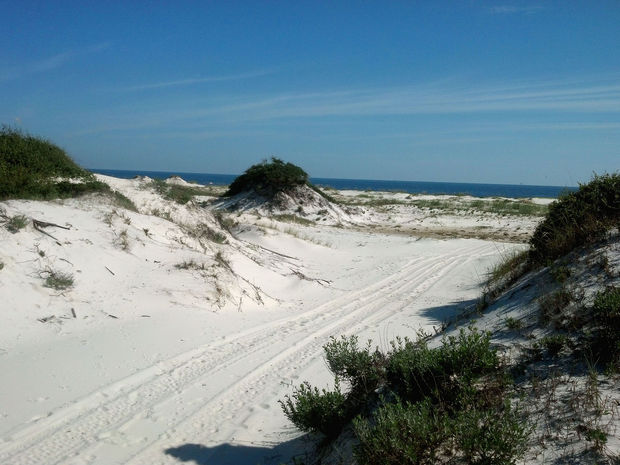 conservation. The purchase was made possible thanks to the award of $36 million in BP oil spill money from the National Fish and Wildlife Foundation.
Previous plans for the land included 500 condos. Now, it will be a wildlife refuge available to the endangered Alabama beach mouse, sea turtles, piping plovers and other animals. This is the biggest project to be funded so far from the Gulf Environmental Benefit Fund managed by NFWF from criminal fines against BP and Transocean.
|
Restoration Funding Calendar
By State:
|
"The Ocean Enterprise -- understanding and quantifying business activity in support of observing, measuring and forecasting the ocean" by Ralph Rayner, Carl Gouldman and Zdenka Willis
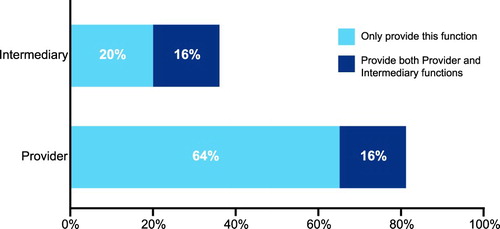 has been published in the
Journal of Operational Oceanography.
The article summarizes the 2016 IOOS Ocean Enterprise study and explores the ways in which the ocean industry cluster interacts with the US Integrated Ocean Observing System and how the United States Ocean Enterprise compares to that of the United Kingdom.
|
| State of the Coast: ECO Magazine Special Issue |
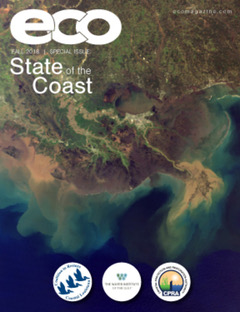
Louisiana's coast is vanishing at an alarming rate.
To highlight the challenges, research and working solutions presented during the State of the Coast Conference in New Orleans earlier this year,
ECO Magazine produced a special issue that examines ongoing restoration efforts along this working coast.
|
| Dark Water Journey: Power of Memories Guides Paddler on Historic Crossing |
Read Eva Pagaling's first-person account of paddling in the
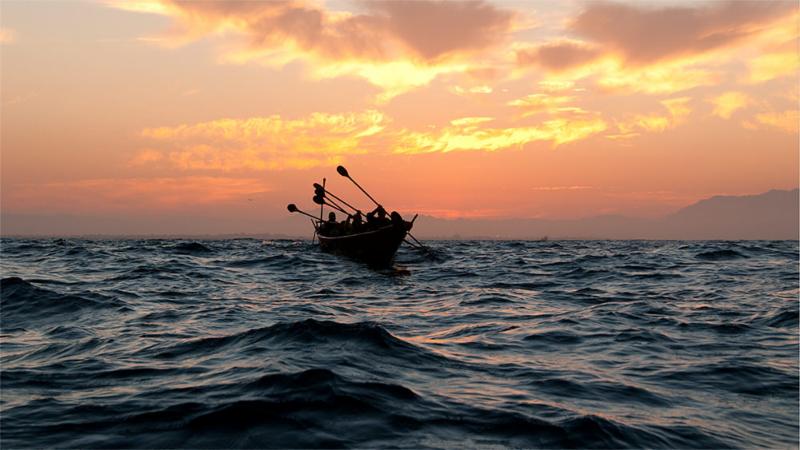 Chumash community's annual tomol crossing. Tomol's are plank boats built by
the Chumash.
"Paddling in Dark Water during the annual Chumash community tomol crossing this year was like paddling into the abyss as we pulled water without the benefit of moonlight. The night sky made the waves between Channel Islands Harbor and Limuw, Santa Cruz Island, appear a shade darker than midnight, and the thick layers of fog floating between us obscured what was left of our vision..."
|
Science and Technology for America's Oceans: A Decadal Vision Report
|
|
The White House National Science and Technology Council (NSTC) released "Science and Technology for America's Oceans: A Decadal Vision" in November.
The report identified five goals to advance U.S. ocean S&T and the Nation in the coming decade:
- Understand the Ocean in the Earth System
- Promote Economic Prosperity
- Ensure Maritime Security
- Safeguard Human Health
- Develop Resilient Coastal Communities.
- Read more
|
|
The GRP is offering up to $10 million in grants to spur innovation and support research that will help reduce and manage risks associated with offshore energy systems. Two workshops identified specific and implementable research to help improve process safety within the offshore oil and gas industry:
- A National Academies workshop, "The Human Factors of Process Safety and Worker Empowerment in the Offshore Oil Industry," which was organized to explore best practices and lessons learned from other high-risk, high-reliability industries for the benefit of enhancing safety in the offshore oil industry.
- A workshop conducted by the Society for Petroleum Engineers, which brought together industry experts to identify research gaps in offshore operations that, if filled, could result in safer offshore development.
This funding opportunity is based on priority research areas identified during those workshops.
- Deadline: A letter of intent is required for this opportunity. Submit your letter of intent by 5:00 p.m. ET on February 13, 2019.
- Details
|
|
The Department of Atmospheric and Oceanic Science at the University of Maryland, College Park invites applications for a tenure track position at the Assistant Professor level. We seek a candidate who will develop an active, externally funded research effort that will complement existing areas of expertise within our Department, teach at both the graduate and undergraduate levels, and is able to make use of the unique resources provided by the Earth System Science Interdisciplinary Center, the state of Maryland, as well as the rest of the greater Washington DC region. Research areas of interest include, but are not limited to biogeochemical cycles, Chesapeake Bay, modeling the interaction between human and natural systems, the oceans and polar science.
Position will remain open until filled and best consideration will be given to applications submitted by Dec. 31, 2018.
|
Instructional Assistant Professor
|
| This non-tenure track position will lead efforts in the development and execution of online courses in an Ocean Data Science track being developed for the online Masters of Geosciences (MGSc) degree program. The candidate is expected to transform and deliver courses on Ocean Observing Systems, Physical Oceanography, and Ocean Data Methods in a distance education environment. The successful candidate will work closely with the College of Geosciences Distance Learning Team, Department of Oceanography faculty and associated content experts to develop online course content material.
|
|
The GRP is accepting applications for two fellowship programs:
Early-Career Research Fellowship: Two years of unrestricted funding to pursue the innovative research and unique collaborations that move coastal science forward. Applications due Feb. 20, 2019.
Science Policy Fellowship: Gain first-hand professional experience as you spend one year alongside decision-makers at agencies across Alabama, Louisiana, Mississippi, Texas and Florida. Applications due March 6, 2019.
|
| Research Technician, University of Louisiana, Lafayette |
A Research Technician position is available in the laboratory of Dr. Beth Stauffer in the University of Louisiana at Lafayette Department of Biology (www.staufferlab.com). Projects in which the candidate will work include: building a continuous nutrient sensor network in the Gulf of Mexico; field and laboratory studies of phytoplankton and harmful algal bloom dynamics in coastal Louisiana; field and laboratory studies of trophic dynamics within planktonic food webs; and others. This position is grant-funded for a period of one year, with continuation dependent on funding and satisfactory performance.
|
| Research Assistant, Woods Hole Oceanographic Institution |
| Woods Hole Oceanographic Institution's Biology Department is seeking a highly motivated individual with prior laboratory experience to assist with multiple research projects. The successful candidate will assist with investigations of the ecology and dynamics of harmful algal blooms, with an emphasis on Alexandrium and Gambierdiscus dinoflagellates. The candidate will participate in both laboratory and field studies using established methods, and will help troubleshoot/refine these techniques as necessary. Note that extensive microscope work will be required. This position is full time and available for a period of one year, renewable depending on performance and funding availability. Online application forms should be submitted with a cover letter and full curriculum vitae including contact information for three references. The closing date for this position is December 30, 2018.
|
2019
March
2019 Emerging Technologies Workshop
The NOAA Observing Systems Council (NOSC), in coordination with the NOAA Ocean and Coastal Council and NOAA Research Council, invites the NOAA community to attend the third annual Emerging Technologies Workshop (ETW) on March 19-20 at the NOAA Center for Weather and Climate Prediction (NCWCP) in College Park, Maryland. This free event will feature NOAA and industry-led presentations on leveraging new technology to advance NOAA's observing systems portfolio. For information on 2019 registration, topic areas, abstract submissions for NOAA-funded technologies.
June
Save the Date: 2019 GOMA All Hands Meeting
Where: The Lodge - Gulf State Park, Gulf Shores, Alabama
When: June 10-13, 2019
Details: To come in January 2019
|
|
Share Your News with GCOOS
|
Do you have a meeting, job or funding announcement? Please let us know so we can help spread the word. Email info, including all pertinent details and website links, to Laura Caldwell, GCOOS Staff Assistant, [email protected].
Are you starting or finishing a research project, reporting new findings, have a new publication or other big news to share with the GCOOS community? Please email our Public Relations and Content Coordinator, Nadine Slimak at Vetted Communications, [email protected].
|
|
|
|
|